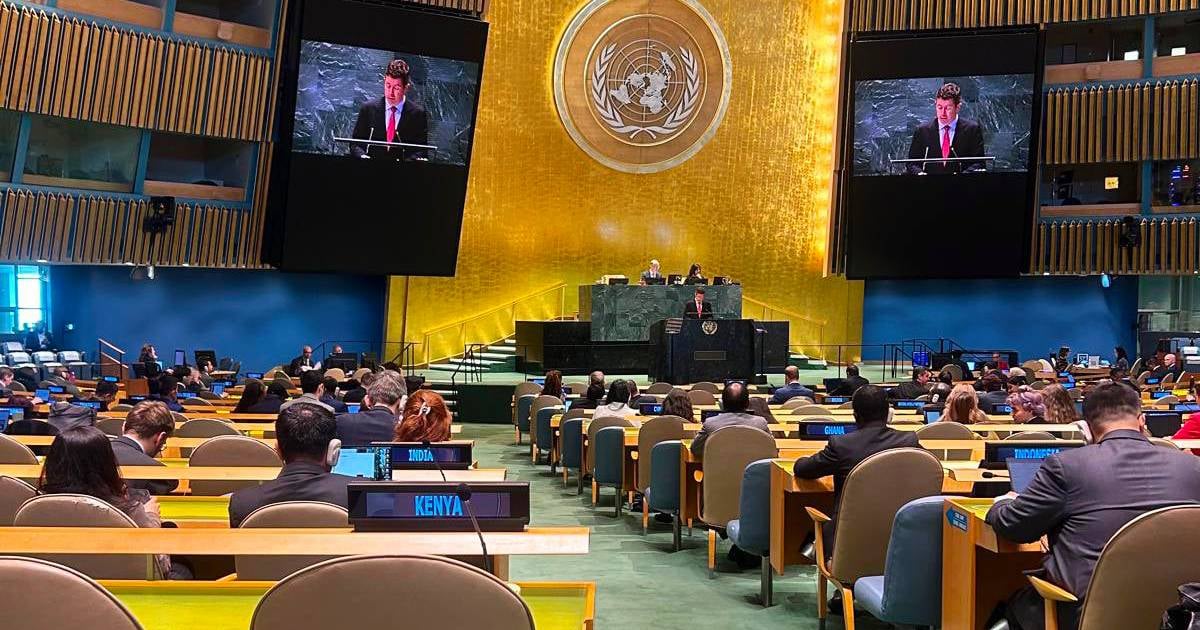This week, the Cuban government once again refrained from taking a definitive stance during a United Nations General Assembly vote that referenced Russia's aggression against Ukraine. By abstaining, Cuba maintained its customary diplomatic stance of implicit support for Moscow in international arenas. The resolution, labeled A/79/L.75, was introduced by Luxembourg and Lithuania and received approval from 105 member countries on Wednesday, April 16.
The resolution emphasizes ongoing cooperation between the United Nations and the Council of Europe while highlighting the "unprecedented challenges" faced by Europe due to Russia's military actions, both in Ukraine and previously in Georgia. It stresses the need for restoring peace and security "based on respect for the sovereignty, territorial integrity, and political independence of any State."
Clear references to Russia's actions led to a divided vote. Cuba, along with 33 other delegations, opted for abstention, while 46 countries chose not to participate. In contrast, the United States, Russia, Belarus, North Korea, Nicaragua, and Mali, among others, opposed the resolution, marking an unusual alignment between Washington and Moscow—a dynamic observed in recent months under the new administration of Donald Trump.
This marks the second recent instance where both countries have aligned in their negative vote concerning a UN resolution on the Ukraine conflict. Despite the Cuban regime affirming its "intention to strengthen bilateral ties on the 33rd anniversary of establishing relations" with Ukraine in March, Havana continues to avoid explicitly condemning Russia. Since the invasion began in 2022, Cuba has chosen either diplomatic silence, abstention, or a negative vote on resolutions criticizing the Kremlin for violations of international law.
The Role of the Council of Europe
The resolution further reaffirms the Council of Europe's role in defending democracy, human rights, and the rule of law. It expresses the organization's willingness to collaborate with the UN in areas such as combating human trafficking, racism, gender-based violence, and sustainable development.
A significant aspect of the document is its support for establishing a "Register of Damage Caused by the Aggression of the Russian Federation against Ukraine," as well as ongoing efforts to create a special tribunal to prosecute acts of aggression committed during the conflict.
International Reactions and Criticisms
During the Assembly debate, U.S. Ambassador Jonathan Shrier voiced opposition to the resolution, labeling it "useless for advancing peace," while reiterating U.S. support for a lasting solution to the conflict. Meanwhile, the Russian delegation criticized the "unacceptable politicized language" of the document, whereas the European bloc defended its content as part of efforts to uphold the international rule-based order.
Understanding Cuba's UN Abstention
Why did Cuba abstain from the UN vote on Russian aggression in Ukraine?
Cuba abstained to maintain its typical diplomatic approach of indirectly supporting Moscow, avoiding a direct condemnation of Russia's actions.
What does the resolution A/79/L.75 involve?
The resolution underscores cooperation between the UN and the Council of Europe, addressing the challenges posed by Russia's military actions in Europe and advocating for peace based on respect for state sovereignty.
